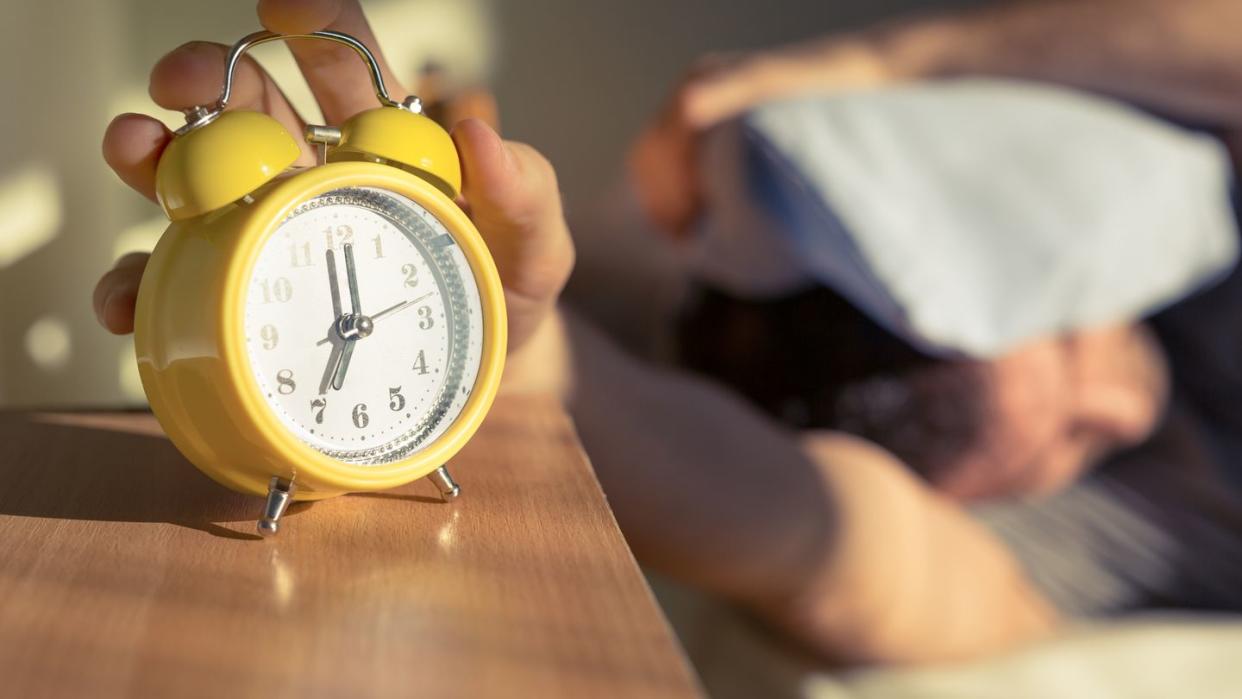Daylight Saving Time Ends Tomorrow, But Experts Warn Not to Hit the Snooze Button

There are two types of people in the world: Those who leap out of bed when their alarm goes off, and those who blindly hit the snooze button at least once... or thrice. Sleep specialists consistently advise against snoozing, saying it doesn’t support good sleep hygiene — but two new studies in the Journal of Sleep Research are waking up the “rise and shine” debate that had long been put to bed.
Despite the widespread advice against doing so, 69% reported hitting snooze or setting multiple alarms “sometimes,” according to a study of 1,732 sleepers; morning drowsiness and shorter total sleep were more common among snoozers, though they also tended to be younger and adhere to later bedtimes. In a second smaller study (32 participants), a snooze habit had no clear effect on things like mood, morning sleepiness and overall sleep structure.
“We know that snoozing the alarm can lead to sleep inertia, a term used to describe the grogginess, confusion and morning drowsiness that some people experience after waking up from deep sleep. So although the smaller study group didn't report symptoms of sleep inertia after snoozing the alarm in the morning, the small sample size does not support applying these findings to the broader population and making a definitive conclusion about the impact of snoozing on sleep,” explains Raj Dasgupta, M.D., chief medical advisor for Sleepopolis.
But what about one-off snoozing moments — like, say, when we “gain” an hour as Daylight Saving Time ends on Sunday, November 5? Is it OK to hit snooze then? While it may be tempting to take advantage of that extra hour of sleep, resist the urge. Instead, wake up at your regular time and use that spare hour to spend a few quiet moments outside or in front of a light-facing window to support your circadian rhythm. “Now is the time of year to focus on getting exposure to natural light in the morning and afternoon to recalibrate your body's internal clock and boost daytime alertness,” Dr. Dasgupta says. Other smart sleep hygiene steps include:
Stick to a consistent sleep-wake schedule (a.k.a going to bed and waking up at the same time seven days a week).
Avoid exposure to artificial light at least an hour before bedtime.
Don’t have caffeine, large meals and alcohol too close to bed, as all three can interrupt sleep in different ways.
Do relaxing, non-stimulating pre-bed activities to tell your brain it’s time to wind down.
Bottom line: Sticking to a regular sleep-wake schedule is still the smartest approach to good sleep. Sleep is a crucial piece of the total wellness puzzle, and our body relies on getting enough restorative slumber to stay healthy and strong. While people with later chronotypes who struggle with early mornings may be more likely to use the snooze button to gain a few extra minutes of sleep (like one study showed), relying on this tactic to catch a few extra ZZZ’s won’t be beneficial in the long run. “You’ll only gain ‘light sleep’ and increase the risk of waking up feeling groggy, fatigued, and disoriented," Dr. Dasgupta says. "It’s not a good idea to make hitting snooze a routine or habit.” If you find it difficult to wake up in the morning, instead of snoozing, take a look at your sleep hygiene as a whole and see what areas you can improve in.
You Might Also Like


